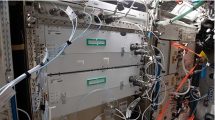
Now that we have polluted our waters, fogged up the atmosphere and made a wasteland of the earth, our eyes have turned heavenward and we have started creating space debris before even a thousand men have set foot there.
But this time, we are given to understand that there is greater accountability, with the International Telecommunications Union (ITU) and several bodies ensuring that satellite operators comply with regulations that ensure their satellites are decommissioned successfully without leaving debris behind.
Some of this was discussed in detail last month at the Satellite show in Washington, DC, which I had the opportunity to attend for the first time.
The ITU guidelines are applicable during launch, at the operational phase of a satellite, and when it is decommissioned. Typically, companies will have to demonstrate that their satellites are stable during their operational tenure and have enough fuel to burn up in space along with the materials used to build the satellite components.
The ITU also determines the frequencies and orbits an operator can potentially use, how many satellites they can place in their allocated orbit, and so on. There are also bodies like the FCC that have guidelines of their own, to ensure for example that no satellite hits the International Space Station (ISS).
Of course, this is not new information but with so many regulatory bodies in place, one would assume that all is well in space – but there are so many unanswered questions. Will non-compliance lead to consequences? Is that limited to satellite companies, or also to governments that do not comply?
Space debris is an ongoing discussion, and I’m sure it will be tackled further at CommunicAsia this month, along with the many benefits of space. We are heading to Singapore for the show. See you there.












Add Comment